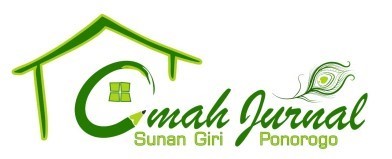Solutions and Strategies to Reduce Damaging Impact of Single-Use Plastic Bag in Toledo City
DOI:
https://doi.org/10.37680/amalee.v3i1.1304Keywords:
environmental impact, plastic waste pollution, policy management, single-use plastic bags, Toledo City GovernmentAbstract
The goal of this study is to gain a better understanding of residents' personal concerns about improper plastic disposal and to give voice to their thoughts about the Toledo City Government's prospective ideas and approaches for minimizing the city's plastic pollution. Residents of Magdugo, Toledo City, Cebu, Philippines, have been subjected to increasing levels of plastic pollution. The vast number of discarded plastic items that eventually end up in canals, drainage systems, and city streets, generating flooding that poses a severe challenge in agriculture, health, and sanitation. According to the findings, the city's inefficient waste management system has resulted in a massive accumulation of durable plastics. Toledo City, on the other hand, has improved waste management, restored cleanliness, and minimized the environmental effect of plastics through regulatory initiatives. The majority of citizens in Toledo City have enthusiastically embraced the city's ordinance prohibiting the use of plastic bags. Plastic bag littering has been shown to decrease throughout the city, resulting in a cleaner and healthier environment. The city's achievement might serve as a model for other places that have yet to abolish plastic bags. As a result of a cleaner and healthier environment, people have become more productive, and tourists have returned to the city, contributing to the city's economic growth. Policy management in the reduction of plastic pollution.
References
Abbas, J., & Sagsan, M. (2020). Identification of key employability attributes and evaluation of university graduates’ performance: Instrument development and validation. Higher Education, Skills and Work-Based Learning, 10(3), 449–466. https://doi.org/10.1108/HESWBL-06-2019-0075/FULL/XML
Adam, I., Walker, T. R., Bezerra, J. C., & Clayton, A. (2020). Policies to reduce single-use plastic marine pollution in West Africa. Marine Policy, 116, 103928. https://doi.org/10.1016/J.MARPOL.2020.103928
Beaumont, N. J., Aanesen, M., Austen, M. C., Börger, T., Clark, J. R., Cole, M., Hooper, T., Lindeque, P. K., Pascoe, C., & Wyles, K. J. (2019). Global ecological, social and economic impacts of marine plastic. Marine Pollution Bulletin, 142, 189–195. https://doi.org/10.1016/J.MARPOLBUL.2019.03.022
Britannica. (n.d.). Toledo | Philippines | Britannica. In K. Pletcher (Ed.), Encyclopaedia Britannica. Retrieved March 19, 2022, from https://www.britannica.com/place/Toledo-Philippines
Cavan, A. (2021, July 30). Toledo Political Forum | A SAFE TOLEDO STARTS WITH ME. Facebook. https://www.facebook.com/groups/toledopoliticalforum/posts/2765373817036599/
Department of Public Works and Highways. (2021, December 21). Typhoon “Odette’s” Public Infra Damage Reaches P448.9-M. Dpwh.Gov.Ph. https://www.dpwh.gov.ph/dpwh/news/24783
Gall, S. C., & Thompson, R. C. (2015). The impact of debris on marine life. Marine Pollution Bulletin, 92(1–2), 170–179. https://doi.org/10.1016/J.MARPOLBUL.2014.12.041
Haward, M. (2018). Plastic pollution of the world’s seas and oceans as a contemporary challenge in ocean governance. Nature Communications 2018 9:1, 9(1), 1–3. https://doi.org/10.1038/s41467-018-03104-3
Jambeck, J., Hardesty, B. D., Brooks, A. L., Friend, T., Teleki, K., Fabres, J., Beaudoin, Y., Bamba, A., Francis, J., Ribbink, A. J., Baleta, T., Bouwman, H., Knox, J., & Wilcox, C. (2018). Challenges and emerging solutions to the land-based plastic waste issue in Africa. Marine Policy, 96, 256–263. https://doi.org/10.1016/J.MARPOL.2017.10.041
Knoblauch, D., Mederake, L., & Stein, U. (2018). Developing Countries in the Lead—What Drives the Diffusion of Plastic Bag Policies? Sustainability 2018, Vol. 10, Page 1994, 10(6), 1994. https://doi.org/10.3390/SU10061994
Kumar, P. (2018). Impact of Plastic on the Environment. International Journal of Trend in Scientific Research and Development, 2(2), 471–474. https://doi.org/10.31142/IJTSRD9421
Livni, E. (2019, May). Africa is leading the world in plastic bag bans | World Economic Forum. Weforum.Org. https://www.weforum.org/agenda/2019/05/africa-is-leading-the-world-in-plastic-bag-bans/
Nurhidayati, M. (2020). Pelatihan Pengelolaan Sampah Plastik di Dusun Sumber Rejo Desa Lembeyan Wetan Kabupaten Magetan. Amalee: Indonesian Journal of Community Research and Engagement, 1(1), 59–67. https://doi.org/10.37680/amalee.v1i01.175
Nwafor, N., & Walker, T. R. (2020). Plastic Bags Prohibition Bill: A developing story of crass legalism aiming to reduce plastic marine pollution in Nigeria. Marine Policy, 120, 104160. https://doi.org/10.1016/J.MARPOL.2020.104160
Philatlas. (n.d.). Juan Climaco, Sr., Toledo, Cebu Profile – PhilAtlas. Philatlas.Com. Retrieved March 19, 2022, from https://www.philatlas.com/visayas/r07/cebu/toledo/juan-climaco-sr.html
Schmied, P. (2019). Barriers and motivators to using reusable shopping bags as an alternative to light plastic bags in the Syunik province of Armenia. https://www2.mst.dk/Udgiv/publications/2018/02/978-87-93614-73-4.pdf
Tan, A. (2019, May). Proposed Ordinance to Phase-out Single-use Plastics in Cebu City - CCEF. Coast PH. https://www.coast.ph/ccef-news/05/proposed-ordinance-to-phase-out-single-use-plastics-in-cebu-city/
van Emmerik, T., & Schwarz, A. (2020). Plastic debris in rivers. Wiley Interdisciplinary Reviews: Water, 7(1), e1398. https://doi.org/10.1002/WAT2.1398
Worm, B., Lotze, H. K., Jubinville, I., Wilcox, C., & Jambeck, J. (2017). Plastic as a Persistent Marine Pollutant. Annual Review of Environment and Resources, 42, 1–26. https://doi.org/10.1146/ANNUREV-ENVIRON-102016-060700
Xanthos, D., & Walker, T. R. (2017). International policies to reduce plastic marine pollution from single-use plastics (plastic bags and microbeads): A review. Marine Pollution Bulletin, 118(1–2), 17–26. https://doi.org/10.1016/J.MARPOLBUL.2017.02.048
Downloads
Published
How to Cite
Issue
Section
License
Authors who submit manuscript retain its copyright and grant Amalee right of first publication licensed under a Creative Commons Attribution-ShareAlike 4.0 International License (CC BY-SA 4.0) that allows others to access (search, read, download, and cite), share (copy and redistribute the material in any medium or format) and adapt (remix, transform, and build upon any material) the work for any lawful purpose, even commercially with an acknowledgement of the work's authorship and initial publication in Amalee: Indonesian Journal of Community Research and Engagement.














